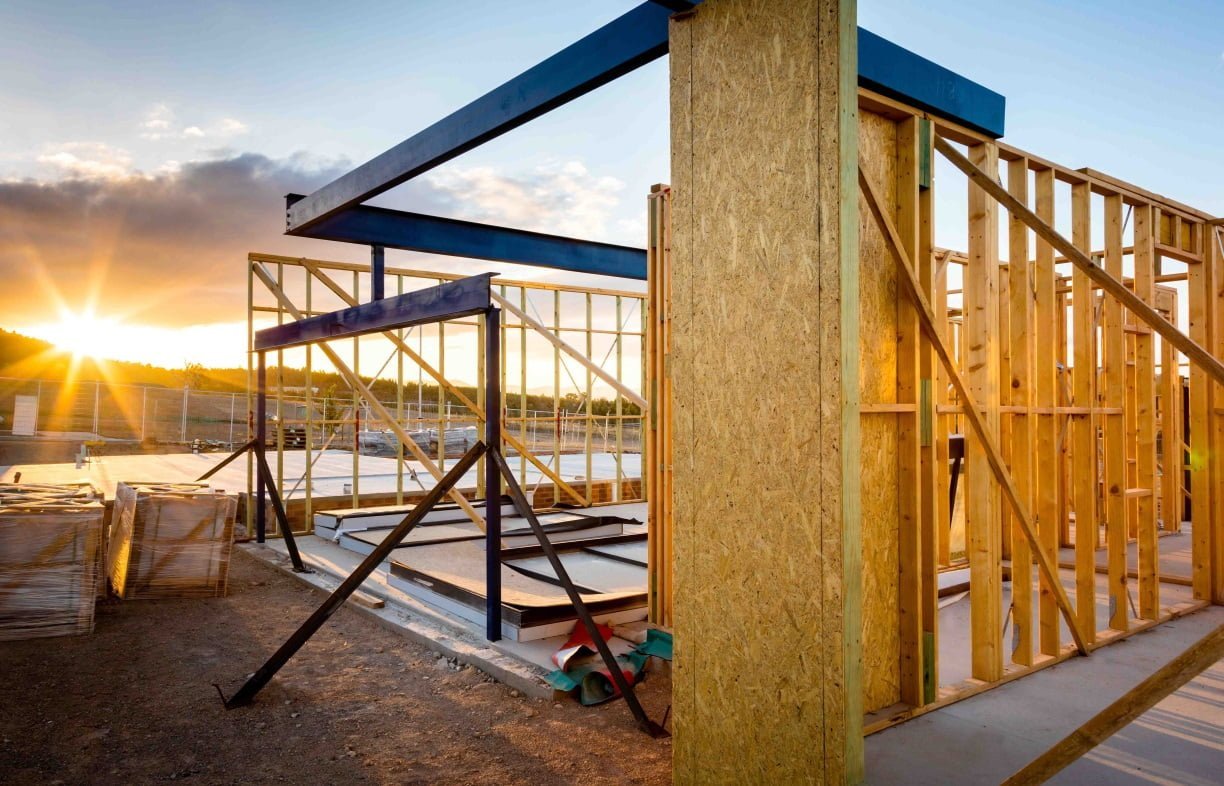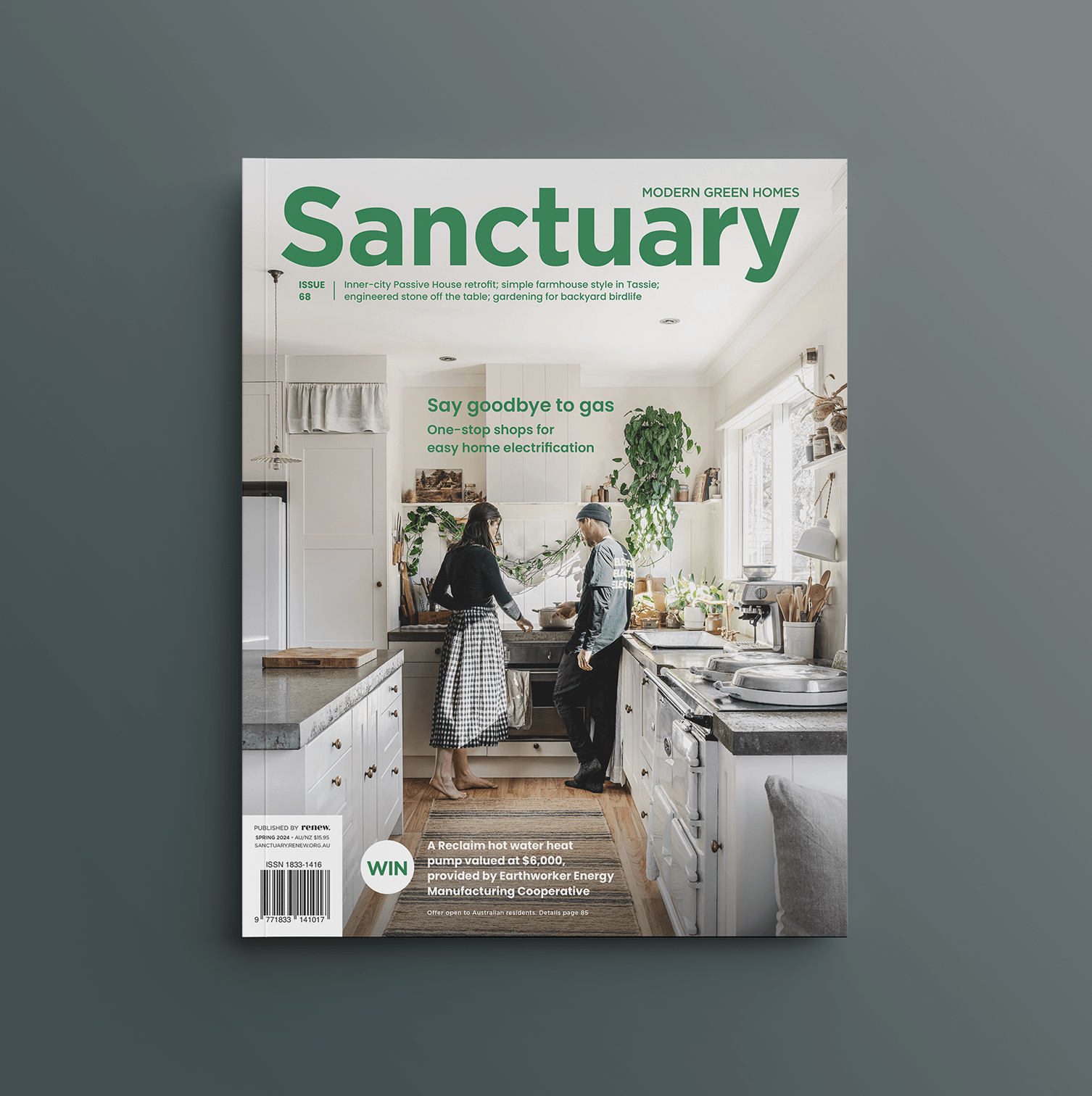Households Better Off: lowering energy bills with the 2022 National Construction Code

A new report released today by Renew shows that increasing the energy efficiency of new homes saves money for residents from day one.
In Households Better Off: Lowering energy bills with the 2022 National Construction Code, Renew modelled the costs and benefits of six energy efficiency scenarios for a medium sized home in four major cities.
The report finds:
- Building 7 Star homes with solar and efficient appliances will significantly cut bills
- Residents are better off from day one, as potential for savings are greater than involved costs
- Savings from better energy performance can wipe months or years off a home loan
7-Star homes with efficient appliances and solar significantly reduce bills. In dual fuel homes, residents saved $1,484 a year in Hobart, $1,043 in Melbourne, $1,059 in Sydney, and $1,287 in Perth.
In all-electric homes with no gas connection, introducing a 7-Star rating, efficient appliances and large solar meant annual bill savings of $1,231 in Hobart, $1,056 in Melbourne, $1,203 in Sydney, and $1,357 in Perth.
The report coincides with the publication of draft energy efficiency rules for new homes in the National Construction Code (NCC), set to be updated in 2022.
Following public consultation, state and commonwealth building ministers will decide whether to increase the minimum NatHERS rating of new homes to 7 Stars and whether to require new homes to have efficient appliances and solar.
Renew’s modelling makes it clear that households will benefit from an increase in standards.
“Energy efficiency saves money. The money you save on energy bills is higher than the monthly cost of the improvements – so households are better off from day one,” said Paul Bowers, Renew CEO.
“Savvy buyers who want to save on bills should ditch gas altogether. We found that all-electric homes with solar and energy efficient appliances can cut bills by 80% and take years off a typical mortgage, by using less, generating more, and cutting out gas connection fees.”
“Making all new homes more energy efficient is a win-win-win-win: it saves money for residents, makes homes better to live in, reduces pressure on the grid, and reduces greenhouse gas emissions. There’s just no reason not to do it.”
Higher energy efficiency is already possible and already being rolled out. The Victorian residential development The Cape sets a minimum standard for all homes of 7.5 Stars with solar.
“Higher performance energy efficient homes deliver better health and comfort, and save thousands of dollars per annum in energy bills for homeowners, and can be carbon neutral” said Brendan Condon, Director of The Cape.
“By diverting energy savings into the home loan, householders can pay off an average mortgage several years early. Our builders at the Cape estate at Cape Paterson are averaging 8 star energy efficiency across the 230 home estate, and annual energy bills are a fraction of those of conventional homes.
“Builders, developers and government should support a shift to minimum 7 star, efficient all electric homes – communities, households and the planet will be the beneficiaries.”
Renew’s findings back important research by ClimateWorks Australia and the Australian Sustainable Built Environment Council (ASBEC) showing the wide-scale benefits of an increase in standards for newly built homes.
ClimateWorks and ASBEC research estimates that 1.1 million homes are expected to be built between 2022 and 2025. Delaying changes to the Code by just three years could add $2 billion to household energy bills and 8 million tonnes of carbon emissions by 2030.
“If we are serious about reducing emissions, saving money, meeting our emissions targets and increasing productivity, we need to continue the momentum towards stronger energy performance – and this 2022 step change for residential buildings is an important part of the process” said Alison Scotland, Interim Executive Director of Australian Sustainable Built Environment Council.

